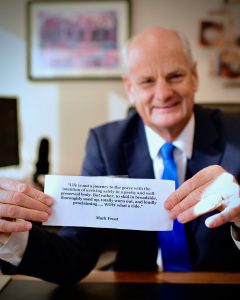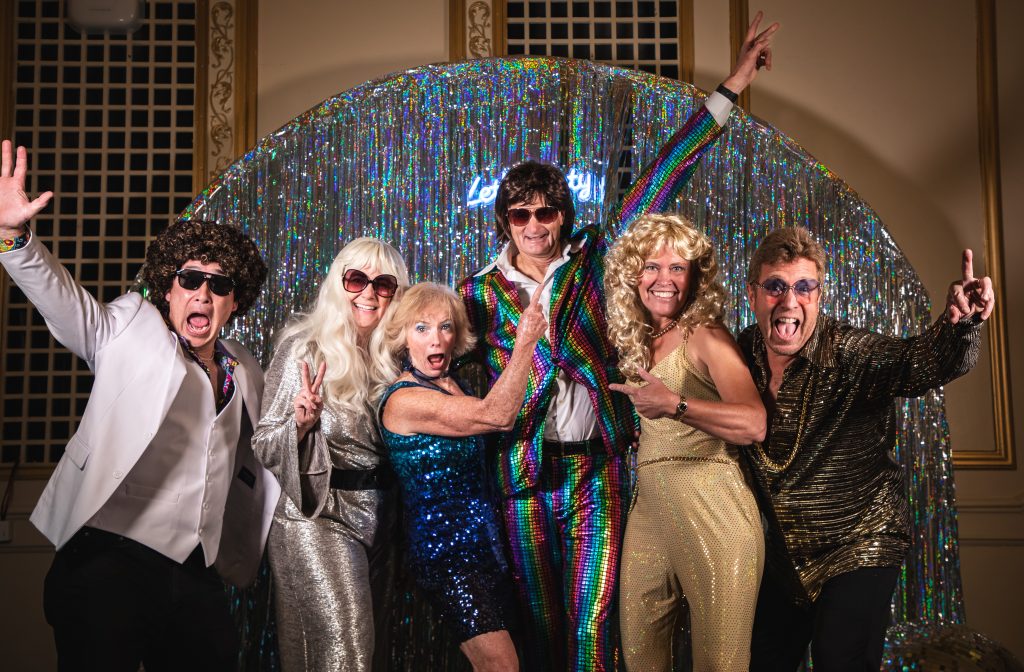
After nearly 19 years as the chair of the University of Wisconsin-Madison’s Department of Radiology, Thomas Grist, MD will step down at the end of 2023. Through challenges like resource constraints, expanded coverage, and the pandemic, Dr. Grist led with a personable, community-focused approach that enabled the department’s continued growth as a national leader in research, education and patient care.
Dr. Grist joined the department in 1991 and became the vice chair of research in 1996. He quickly identified the opportunity for more collaboration in the domain. “That’s when I started the initiative to bring our research groups together,” explains Dr. Grist. “I recognized the power of having radiologists and medical physicists physically near each other – and near state-of the-art medical imaging equipment.”
He focused on expanding the department’s research partnership with GE HealthCare and other industry partners to build the Imaging Sciences Center within the Wisconsin Institutes for Medical Research (WIMR) building. Completed in 2012, the 469,000-square-foot building includes laboratory spaces, imaging and radiation sciences research space, and a vivarium. This enabled the Departments of Radiology and Medical Physics to collaborate more closely and bring innovations from bench to bedside.
“[WIMR] has really exceeded my expectations in bringing people together,” says Dr. Grist. “It’s allowed us to recruit some incredible faculty and to create an environment where developments can be translated into clinical practice.”
In 2005, Dr. Grist succeeded Patrick Turski, MD to become chair. Since then, the number of faculty in the department has tripled. A significant contributor to this increase was the expanded clinical operations at University Hospital and beyond. Imaging procedures and protocols that were previously only available at the academic medical center are now provided in smaller patient-centered hospitals and outpatient clinics by our Community section. In addition, the number of diagnostic studies and image-guided therapies grows each year as the technology makes it more accessible and essential for patient care.
As the chair, Dr. Grist recruited world-class faculty members who are committed to collaborative relationships as well as the department’s mission of innovation in clinical care, imaging research, and education. With a foundation of great faculty and staff, the future is even brighter.
Artificial intelligence and machine learning have the potential to impact the entire diagnostic spectrum. Image-guided therapies are offering minimally-invasive and targeted treatments for cancer and other diseases. In addition, predictive imaging offers huge opportunities to improve population health by identifying potential problems before they become diseases.
“There’s tremendous opportunity in theranostics and image-guided interventions, especially as we move into the East Park Medical Center,” says Dr. Grist. The center, which will be completed in 2024, will offer specialized suites with the necessary equipment to offer cutting-edge, world-class treatments for patients at UW.
By encouraging a culture of mentorship, cooperation, and building the necessary infrastructure, Dr. Grist has ensured that UW is poised to excel in these emerging fields. An emphasis on teamwork doesn’t just promote innovation in research and clinical care: It encourages excellence in education, too.
“There’s an emphasis on quality, doing the right thing for our patients, and collaborating with others,” notes Dr. Grist. “Those same principles apply to how we educate our trainees.”
The commitment to education earned the department “Best Radiologist Training Program” from AuntMinnie in 2017 and a finalist spot in 2022. Even an award-winning education program faced challenges during the pandemic. Dr. Grist guided the department in adapting to a changed world and establishing new opportunities for collegiality and mentorship.
Dr. Grist introduced a new mentorship program this year that paired each first-year resident with a faculty member. Throughout their time at UW-Madison, the residents will benefit from the guidance and support of their mentors.
All of Dr. Grist’s contributions are guided by a commitment to service, in alignment with the Wisconsin Idea, UW-Madison’s longest and proudest tradition. He has no doubt that his successor, Scott Reeder, MD, PhD will continue to make strides to innovate – and ultimately, to improve patient care.
Dr. Grist will continue his clinical and research work in the Cardiovascular Imaging section of the department. He plans to pursue some new areas of interest, like reducing the carbon footprint of medical imaging.

In honor of his legacy, the department hosted a celebration at the Orpheum Theater in October 2023. Colleagues, friends and family gathered to express their gratitude and respect for Dr. Grist. In line with Dr. Grist’s personality, the event was an informal, 70’s disco-themed party where everyone could dance and enjoy being part of the community that Dr. Grist has led for almost two decades.